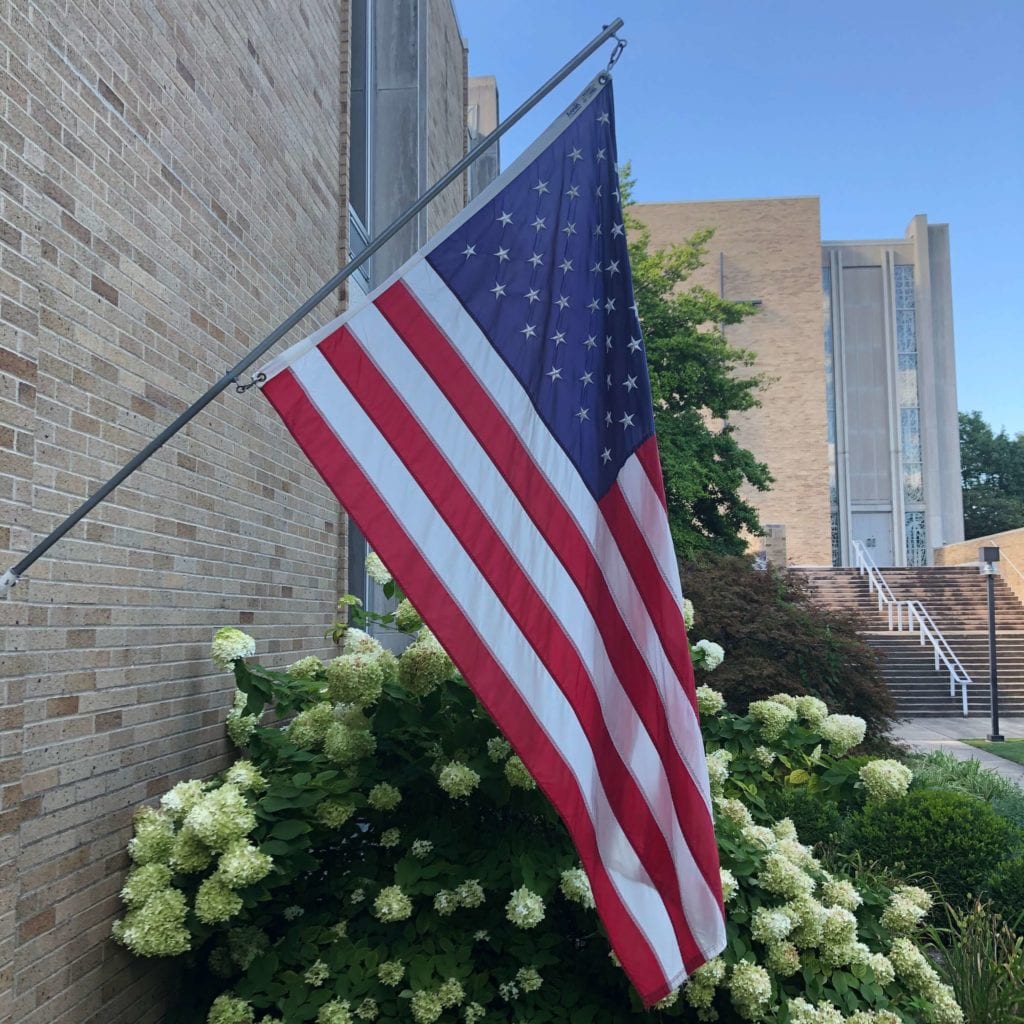“Ordinary people with extraordinary vision can redeem the soul of America by getting in what I call good trouble, necessary trouble. Voting and participating in the democratic process are key. The vote is the most powerful nonviolent change agent you have in a democratic society. You must use it because it is not guaranteed. You can lose it."
John Lewis
Sister Marcelline Koch, our justice promoter, prepared this information for our sisters who live in Sangamon County and we decided it was too helpful to keep to ourselves.
“If you live in a different county, you may want to check with your county clerk, though I’m guessing the process would be similar,” she said.
It was concerns about mail delivery that prompted Sister Marcelline to call the county clerk for information about how to make sure our sisters’ votes are counted in the elections this fall.
“I contacted the Sangamon County Clerk regarding mail-in or absentee ballots being delivered personally rather than by U.S. mail,” she said. “This is what they told me.”
Mail-in or Absentee Ballots (basically the same)
- Individuals who requested a mail-in ballot:
- Can bring their own ballot in to the County Clerk’s office (in the past years I have usually voted early and it was in the County Clerk’s office).
- If they decide to vote in person after having requested a mail-in ballot, they must bring the mail-in ballot with them and “surrender” it before voting in person.
- Individuals who requested a mail-in ballot and need someone else to deliver it:
- After marking the ballot, insert in the privacy sleeve and the manila envelope provided. The voter signs it and also the person who will deliver it to the County Clerk’s office.
- That envelope can be put in the larger white one which also has two signature places. Directions are on both envelopes.
- The person delivering it needs to have a photo ID, e.g. driver’s license.
Some counties have plans to provide drop boxes for ballots. Typical security measures for drop boxes include video surveillance, locks, tamper-resistant seals and chain-of-custody logs that are completed each time ballots are collected.
The late Congressman John Lewis understood voting as a sacred right. In an essay published on the day of his funeral, he wrote: “Ordinary people with extraordinary vision can redeem the soul of America by getting in what I call good trouble, necessary trouble. Voting and participating in the democratic process are key. The vote is the most powerful nonviolent change agent you have in a democratic society. You must use it because it is not guaranteed. You can lose it."
Want to know more?
Watch Suppressed; the Fight to Vote.
“While the documentary is based on Georgia’s 2018 gubernatorial election, it speaks to the many issues that you hear about nationally concerning the suppression of voting rights,” Sister Marcelline says.
In 2013, the Supreme Court invalidated part of the 1965 Voting Rights Act. That decision meant that those states with the longest histories of discrimination no longer had to approve their voting changes with the federal government.


